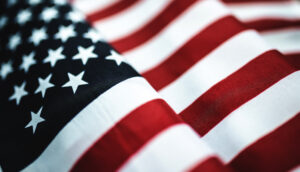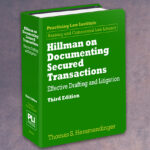
Enforcing ‘Made In USA’ Claims Is Still In Fashion For The FTC
//

In a world where “Made in USA” claims hold significant allure for consumers, the recent action taken by the FTC against a group of clothing accessories companies based in Massachusetts and New Hampshire, along with their owner, Thomas Bates, underscores the agency’s unwavering commitment to combat deceptive or misleading labeling practices.
googletag.cmd.push( function() { // Display ad. googletag.display( "div-id-for-top-300x250" ); });Companies find it attractive to market their products with the “Made in USA” label, as it often carries a perception of higher quality, safety, and reliability due to stringent manufacturing standards in the United States. These companies are also aware that many customers purchase American-made products in order to support their local economy and job creation. Customers are willing to pay a premium for it.
 Sponsored Webinar: How Private Equity Is Gaining A Competitive Edge With AI Join Ontra and guests from Insight Partners and Harvard Business School as they discuss how firms can capitalize on AI while mitigating risk From Ontra
Sponsored Webinar: How Private Equity Is Gaining A Competitive Edge With AI Join Ontra and guests from Insight Partners and Harvard Business School as they discuss how firms can capitalize on AI while mitigating risk From Ontra However, the “Made in USA” label can sometimes lead to instances of deceptive or misleading claims, especially in cases where only a portion of a product’s components or assembly is truly domestic. To counter such practices, the FTC actively conducts investigations and enforces regulations to ensure that companies accurately represent the origin of their products.
The FTC first enacted “Made in USA” labeling standards in the 1940s. Those standards have recently evolved to better accommodate the complexities of a global supply chain and meet the demands of consumers for greater transparency in product labeling. The FTC finalized the Made in USA Labeling Rule on August 13, 2021, providing that a product using a “Made in USA” claim is prohibited unless: 1) final assembly or processing of the product occurs in the United States; 2) all significant processing that goes into the product occurs in the United States; and 3) all or virtually all ingredients or components of the product are made and sourced in the United States.
googletag.cmd.push( function() { // Display ad. googletag.display( "div-id-for-middle-300x250" ); }); googletag.cmd.push( function() { // Display ad. googletag.display( "div-id-for-storycontent-440x100" ); }); googletag.cmd.push( function() { // Display ad. googletag.display( "div-id-for-in-story-youtube-1x1" ); });The FTC enacted the Made in USA Labeling Rule pursuant to its authority under 15 U.S.C. 45a, providing that the commission “may from time to time issue rules pursuant to section 553 of title 5, United States Code” requiring “Made in USA” labeling to “be consistent with decisions and orders of the Federal Trade Commission issued pursuant to [Section 5 of the FTC Act].” Now the FTC is authorized to seek civil penalties for violations of this rule. The financial penalties can be substantial, with fines potentially reaching as high as $46,517 per violation.
The rule reflects the FTC’s existing guidance, which came into effect in 1997 in the FTC’s Enforcement Policy Statement on U.S. Origins Claims. The 1997 policy statement explained that “unqualified U.S. origin claims should be substantiated by evidence that the product is all or virtually all made in the United States.” More specifically, the statement noted that “in order for a product to be considered ‘all or virtually all’ made in the United States, the final assembly or processing of the product must take place in the United States.” If this minimum threshold is met, the FTC will consider other factors such as “the portion of the product’s total manufacturing costs that are attributable to U.S. parts and processing; and how far removed from the finished product any foreign content is.” The 1997 policy statement applies to U.S.-origin claims included in labels, advertisements, and other promotional materials.
Sponsored Sponsored Webinar: How Private Equity Is Gaining A Competitive Edge With AI Join Ontra and guests from Insight Partners and Harvard Business School as they discuss how firms can capitalize on AI while mitigating risk From Ontra
Sponsored Webinar: How Private Equity Is Gaining A Competitive Edge With AI Join Ontra and guests from Insight Partners and Harvard Business School as they discuss how firms can capitalize on AI while mitigating risk From Ontra  Sponsored NetDocuments’ Rebecca Sattin On Customer-First Approach And Future-Proofing Your Firm How a customer-focused transition from Worldox to NetDocuments sets the stage for a future of successful tech advancement. From Ethan Beberness
Sponsored NetDocuments’ Rebecca Sattin On Customer-First Approach And Future-Proofing Your Firm How a customer-focused transition from Worldox to NetDocuments sets the stage for a future of successful tech advancement. From Ethan Beberness  Sponsored Experience AI-Powered Contract Negotiation With Ontra Tired of negotiating and managing routine contracts? Ontra makes the most of human expertise and proprietary AI assistance to automate contracts like never before. From Ethan Beberness
Sponsored Experience AI-Powered Contract Negotiation With Ontra Tired of negotiating and managing routine contracts? Ontra makes the most of human expertise and proprietary AI assistance to automate contracts like never before. From Ethan Beberness  Sponsored NetDocuments’ Rebecca Sattin On Customer-First Approach And Future-Proofing Your Firm How a customer-focused transition from Worldox to NetDocuments sets the stage for a future of successful tech advancement. From Ethan Beberness
Sponsored NetDocuments’ Rebecca Sattin On Customer-First Approach And Future-Proofing Your Firm How a customer-focused transition from Worldox to NetDocuments sets the stage for a future of successful tech advancement. From Ethan Beberness The FTC illustrates the principles set forth in the 1997 policy statement through the following examples: A barbecue grill is assembled in the U.S., incorporating all U.S. components except for knobs and tubing, which are imported from Mexico. In this scenario, an unqualified “Made in USA” claim is not likely to be deceptive. A lamp is assembled in the U.S. from American-made brass and lampshade but includes an imported base. In this scenario, an unqualified “Made in USA” claim is likely to be deceptive even though the base accounts for a small percent of the total cost of making the lamp for two reasons — the base is not far enough removed in the manufacturing process from the finished product to be of little consequence, and it is a significant part of the final product.
The FTC continued to explore the complexities of “Made in USA” claims in its August 22, 2023, opinion finding Chaucer Accessories, Bates Accessories, Bates Retail Group, and their owner, Thomas Bates, liable for unfair or deceptive acts or practices under Section 5 of the FTC Act. Notably, this case is not brought under the Made in USA Labeling Rule because the rule applies exclusively to unqualified claims.
In its complaint, the FTC argued that Bates and his companies have deceptively marketed their products, including leather and fabric belts, bags, wallets, and shoes, “implying all their products are all or virtually all made in the United States.” The complaint targeted the unqualified “Made in USA” or “Hand Crafted in the USA” claims displayed on the Chaucer and Bates websites, catalogs, promotional materials, and third-party online marketplaces such as Amazon. The FTC claimed that this marketing constituted unfair or deceptive actions or practices under Section 5 of the FTC Act because, in numerous instances, these products were wholly imported or contained significant imported content.
googletag.cmd.push( function() { // Display ad. googletag.display( "div-id-for-bottom-300x250" ); });The complaint also alleged that Bates and his companies made improper qualified claims that their finished belts were “Made in USA from Global Materials” where they imported belt straps from Taiwan and affixed buckles to the straps in the United States. The FTC claimed that this marketing constituted unfair or deceptive actions or practices under Section 5 of the FTC Act because, in numerous instances the belts were wholly imported with de minimis finishing in the United States. Further, the FTC noted that the U.S. Customs and Border Protection determined that these belts were not “Made in USA from Global Materials” “because attaching a buckle to a belt strap is a minimal assembly operation that does not change the name, character, or use of an imported belt strap.”
The FTC ordered Bates and his companies to pay a monetary judgment of $191,481, agree to no longer make deceptive or misleading U.S.-origin claims, and provide notice to customers who purchased any products at issue that the products were imported.
Sponsored Sponsored Documenting Secured Transactions: A New Guide For Practitioners A newly updated PLI treatise provides both the legal framework and practical guidance on documenting secured transactions, including important details about 2022 amendments to the UCC. From Practising Law Institute
Sponsored Documenting Secured Transactions: A New Guide For Practitioners A newly updated PLI treatise provides both the legal framework and practical guidance on documenting secured transactions, including important details about 2022 amendments to the UCC. From Practising Law Institute  Sponsored Survey Results: A Perspective On The Private Markets Ontra surveyed over 400 private markets professionals about what to expect this year and their legal process pain points. From Kerry G. Benn, Ontra
Sponsored Survey Results: A Perspective On The Private Markets Ontra surveyed over 400 private markets professionals about what to expect this year and their legal process pain points. From Kerry G. Benn, Ontra The August 2023 order provides guidance for both qualified and unqualified “Made in USA” claims. With regard to the unqualified claims, the order reiterates the 2021 Made in USA Labeling Rule, stating that Bates and his companies cannot make an unqualified U.S.-origin claim unless “[t]he final assembly or processing of the product occurs in the United States, all significant processing that goes into the product occurs in the United States, and all or virtually all ingredients or components of the product are made and sourced in the United States.” However, for qualified claims, the order provides that Bates and his companies are required to provide “[a] [c]lear and [c]onspicuous qualification … adjacent to the representation that accurately conveys the extent to which the product contains foreign parts, ingredients or components, and/or processing.” Lastly, the order states that if Bates and his companies claim a product is assembled in the U.S., they must ensure that “the product is last substantially transformed in the United States, the product’s principal assembly takes place in the United States, and United States assembly operations are substantial.”
In a press release following the Bates case, Samuel Levine, director of the FTC’s Bureau of Consumer Protection emphasized: “ ‘Made in USA’ means what it says. Falsely labeling products as ‘Made in USA’ hurts consumers and competition, and the FTC will continue to aggressively enforce the law to stop deceptive claims and hold violators accountable.”
This marks the eighth enforcement action related to U.S. origin claims in the past two years, with each offender facing substantial monetary penalties, often exceeding six figures. Companies, including those in the fashion industry, must exercise caution whenever they make “Made in USA” claims, whether qualified or unqualified. Such caution exceeds far beyond the actual label affixed to the product, and includes claims on the internet and print advertising.
In addition to facing FTC prosecution, companies must also be vigilant against potential class-action lawsuits seeking to hold them accountable for deceptive practices targeting consumers. For example, in December 2021, a class action for breach of warranty, unjust enrichment, fraud, and violations of state unfair competition laws, among other claims, was brought against New Balance for marketing its footwear as “USA Made” when “as much as 30 percent” of a sneaker allegedly consists of imported parts. While the case has survived the motion to dismiss stage, the court has not yet reached a final decision.
Nicolette Shamsian joined Above the Law as a fashion law columnist in 2023. Nicolette earned her B.A., summa cum laude, in Political Science and minor in Entrepreneurship from the University of California, Los Angeles and her Juris Doctor from UCLA School of Law. Nicolette is an attorney whose work focuses on intellectual property litigation. As a fashion law aficionado, Nicolette enjoys leading discussions to keep attorneys up to date on noteworthy fashion law cases.
TopicsATL Fashion, Fashion, Intellectual Property, Nicolette Shamsian
Introducing Jobbguru: Your Gateway to Career Success
The ultimate job platform is designed to connect job seekers with their dream career opportunities. Whether you're a recent graduate, a seasoned professional, or someone seeking a career change, Jobbguru provides you with the tools and resources to navigate the job market with ease.
Take the next step in your career with Jobbguru:
Don't let the perfect job opportunity pass you by. Join Jobbguru today and unlock a world of career possibilities. Start your journey towards professional success and discover your dream job with Jobbguru.
Originally posted on: https://abovethelaw.com/2023/09/enforcing-made-in-usa-claims-is-still-in-fashion-for-the-ftc/